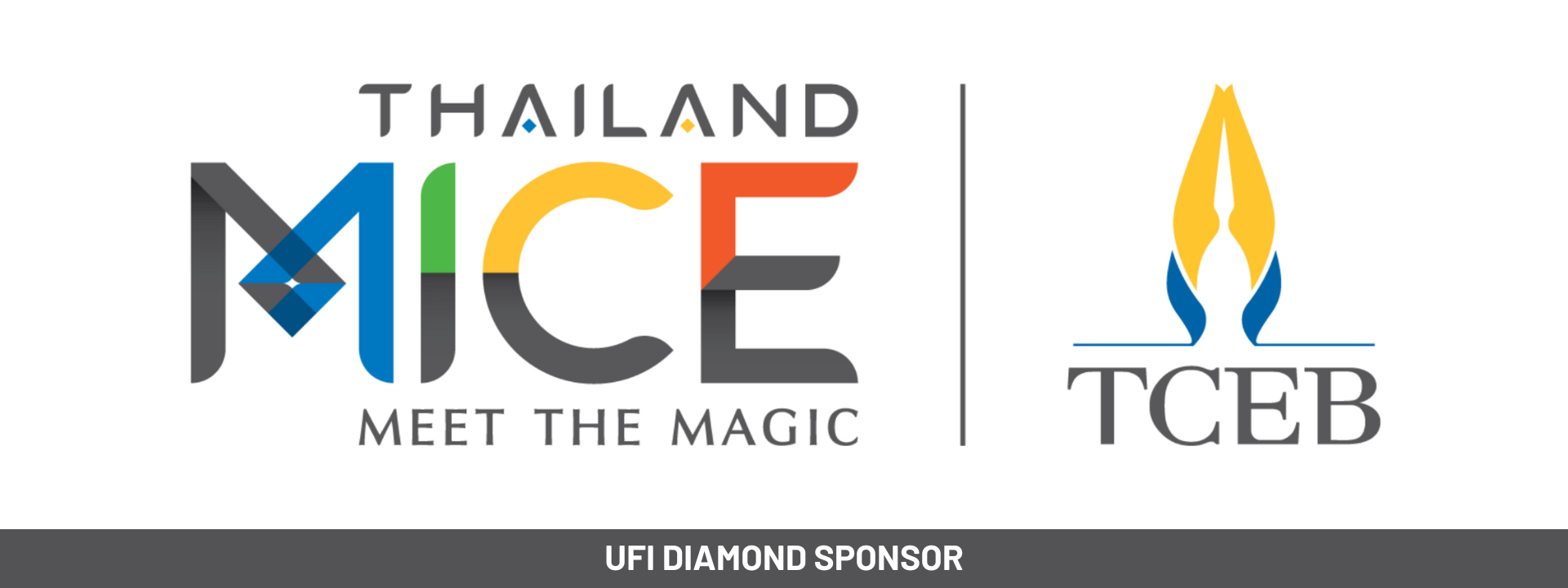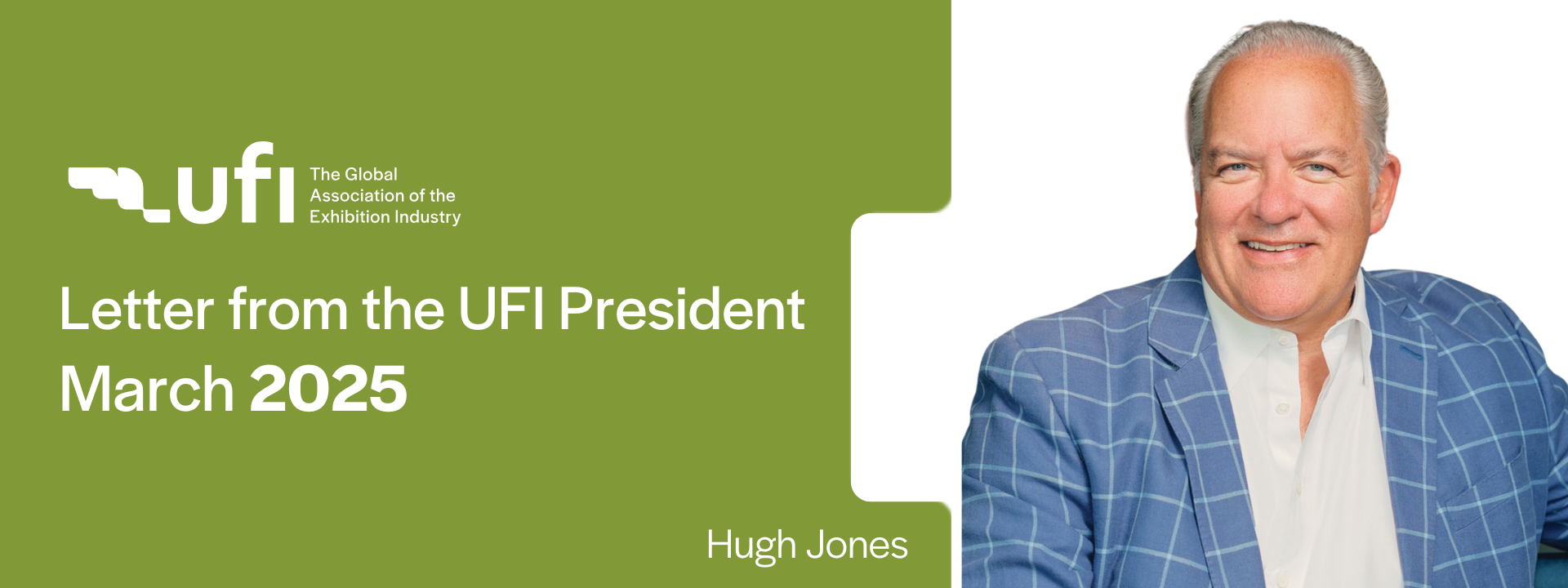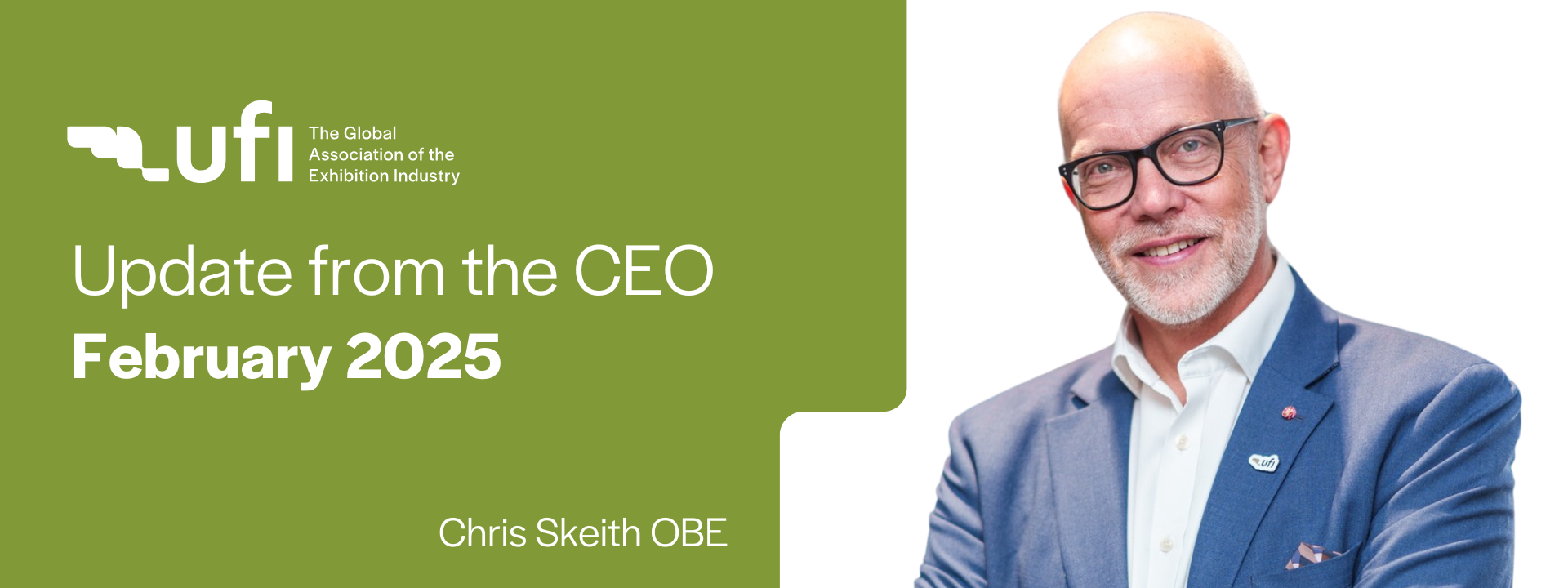
Marco Basso, President of Brazil Informa Global Exhibitions Division.
Marco A. Basso, is President of Brazil, Informa Global Exhibitions Division, a company he’s been with the last 22 years. Discovered by a head hunter to begin Informa’s operations in the country, he knew nothing about the exhibition business, but had a background in congresses and seminars. Like most of us, he said, “The exhibition business is a very dynamic industry and gets into your blood pretty quickly – but you have to have a particular DNA to stay in it.”
In 2009, Informa Brazil, then a primarily conference business, expanded into trade shows, and now with the UBM acquisition, are the largest exhibition producers in the world.
Marco is participating on a panel at the upcoming inaugural UFI Latin American Conference this September 18-19 in Mexico City. During the session, Expos in Times of Crisis, he will be sharing experienced insight on what it takes to survive and thrive in challenging times – of which Brazil has seen quite a few. He spoke with me recently about Brazil and trade shows.
The Brazilian market has been through quite a few economic ups and downs from the 1960’s onwards. According to Marco, “The stabilization of the economy, beginning in 1995, saw some international exhibition companies begin to enter the Brazilian market. Informa arrived in 1996. Through some volatility and bumps in the road, the domestic market grew until 2012 when it peaked.”
From 2014-16, there was a drastic decline (10% compound drop) in the economy based on poor government and policy decisions. However, things are looking up, at least in the short term. There was 1% economic growth last year, and it’s predicted to grow 2% this year. With elections slated for later this year, growth may or may not be accelerated, depending on who wins.
Marco continued, “Trade shows are effected by the economy, so the main casualties (during the downturn) in our industry were smaller and regional events. Only mainstream expos – those owned by companies who had good internal structures and financial strength, managed to survive. As in any crisis, it cleaned up the market and those who survived are able to take advantage of growth.”
With a population of over 200 million people, and a developing middle class, the biggest demand is for infrastructure within the country. Like the US and other countries around the world, the internet has had an impact on retail, brick and mortar establishments. As Marco explained, “Trade shows are evolving according to market conditions. While digital platforms and tools are extending the shelf life of our events, it’s still more important than ever for stay connected to exhibitors and attendees longer than once a year. Face-to-face continues to be important and people still crave human connections.”
He continued, “Some people in the Brazilian exhibition industry are still old school and think trade shows are all about the exhibitors. We disagree and believe that it’s about the buyers. What kind of value do our exhibitions bring to the attendees? To stay relevant to the markets we serve, having the right visitors is key. Bring in the buyers and the sellers will come.”
Lastly, we discussed the exhibition industry in Brazil. He said, “We do a good job in Brazil with trade shows. However, the fog of the Brazilian economy hides the shine of what we do. It makes it difficult to show financial and other results when the economy is murky. There are still plenty of small players who may be acquired by one of the international companies in the future.
Even though Brazil has a very isolated economy, and proportionally fewer international exhibitors and visitors than other countries its size, Marco sees an opportunity for those same visitors and exhibitors to enter or explore entering this huge market. “After all, Brazil still has one of the top ten economies in the world.”
Catch the “Expos in Times of Crisis” panel discussion at the UFI Latin American Conference, Wednesday, September 19 from 10:15-10:45.







Leave A Comment